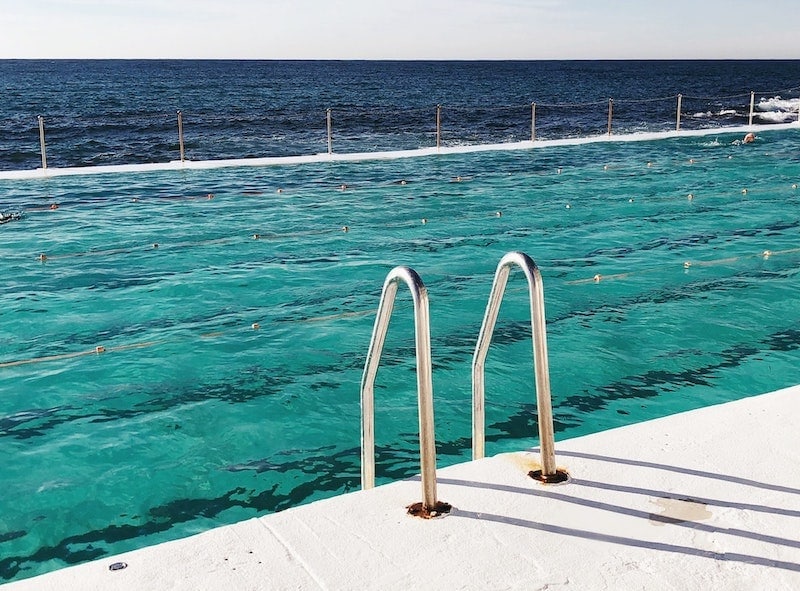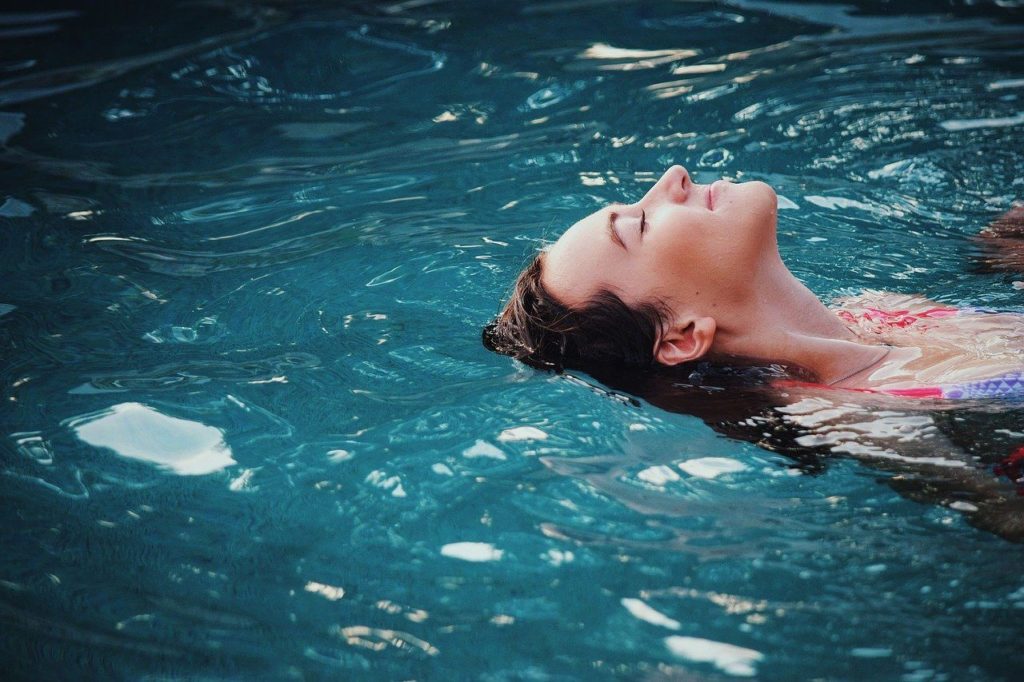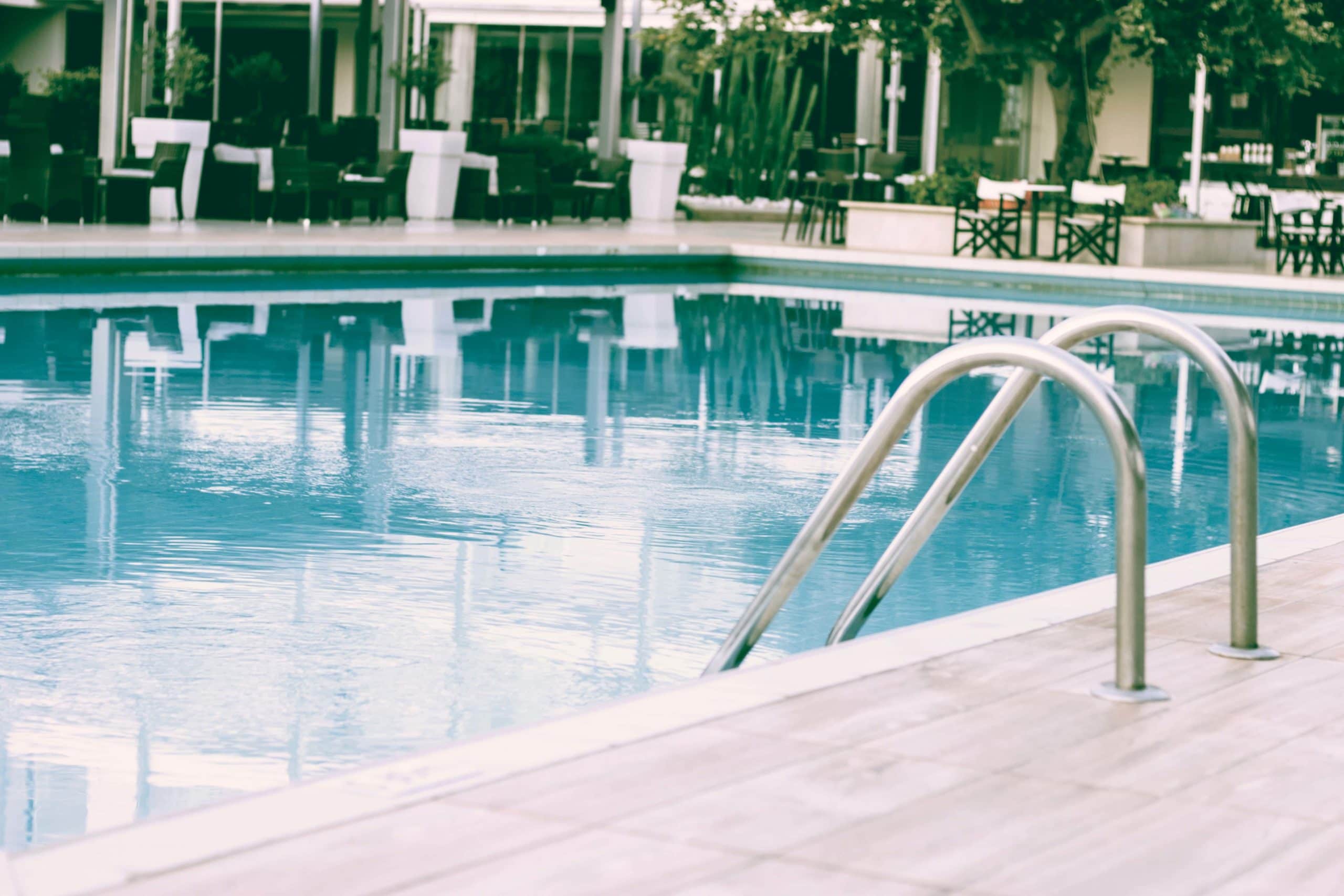5 Pool Chlorine Alternatives Worth Considering
-
Pete Ortiz
- Last updated:

Most pool owners have a love-hate relationship with chlorine. It does the job to keep your swimming pool swimmable and safe, but it has some side effects that make it challenging to work with. This leaves many wondering if there are any suitable alternatives to chlorine?
We have come up with five ways for you to lower or deplete your chlorine use. Some options are quite costly, and some are not a complete solution, but if you are looking to move away from chlorine, you are in the right place.
What Does Chlorine Do?
Chlorine is known to keep the pool clean, but it has three jobs. The first is to kill bacteria and germs; chlorine acts as a sanitizer.
Next, chlorine must oxidize the water. This is better known as clearing up body oils and organic debris left behind in the swimming pool.
Lastly, chlorine must create an environment where algae does not want to grow. When looking for a chlorine replacement, you must make sure you are taking care of these three things.
The 5 Pool Chlorine Alternatives
1. Bromine

You may have had some experience with bromine if you have a hot tub. Bromine is most commonly used to clean hot tubs, but it is not as widely accepted as an alternative for chlorine in pools. Bromine is in the same family as chlorine, so if you have irritation issues with chlorine, bromine might not be the ideal solution for you.
Bromine still produces an odor similar to chlorine. Although bromine can be easier to work with, you will go through much more in a season than you would with chlorine. Bromine does not oxidize as well as chlorine does, so you might be looking at buying other chemicals to help with this.
One of the most significant issues with bromine is the fact that it does not work with cyanuric acid the way chlorine does. When you have a chlorine pool, you use cyanuric acid or stabilizer to help the chlorine last longer and not be burned off by the sun. Bromine and stabilizer don’t work together so bromine will be burned off by the sun pretty quickly. This is what makes bromine popular for indoor spas where there is no sunlight. If your pool is in direct sunlight, expect to go through quite a bit of chemical during the high sun months.
- Can be less irritable to skin
- Does almost as good a job as chlorine with sanitizing, oxidizing and preventing algae
- Works well in high-temperature pool
- More expensive than chlorine (expect to spend about double what you do on chlorine)
- Does not work with stabilizer so will not last long on high sun days
- Still has some odor
2. Mineral System
Mineral pool water systems are growing quickly in popularity. They are straightforward to use, but the initial costs may make this an option that you can’t consider. Although a mineral system is not going to eliminate chlorine, it can reduce usage by up to 50 percent.
No products found.
Options with mineral systems can vary between units that float in your pool and units that are complete sanitation systems. The overall systems are very low maintenance, and you can purchase pre-filled mineral cartridges to place in the system. Aside from the high initial costs, the mineral system can be an excellent solution for those tired of the harshness of chlorine.
- Will lower chlorine use and is still effective when sanitizing and algae prevention
- Soft water
- Low Maintenance
- Higher initial costs
- May need to reconfigure pool setup for initial install
3. PHMB
PHMB (or polyhexamethylene biguanide) is a way to eliminate chlorine from your pool. The problem with PHMB is that it will not oxidize, and it will not prevent algae from growing. However, it does work to sanitize the water.
PHMB will attach to the bacteria in the pool, wrap them in a gel-like material, and then they will sink to the bottom of the pool. Next, the pool vacuum cleaner will work to clean up all of the bacteria from the bottom.
PHMB is easy to work with, doesn’t need to be checked on as often as chlorine, and it is kinder to people. If you struggle with green hair and other chlorine related issues, PHMB will be a welcome relief. If you have a vinyl liner, PHMB will be easier on it then chlorine will be.
You will need hydrogen peroxide to oxidize the pool and an algaecide to prevent algae.
Another thing to consider when deciding to go with PHMB is that you must start fresh and drain the entire pool before converting. PHMB and chlorine are incompatible.
- Eliminates chlorine
- Easy on skin and eyes
- Less checking of chemical levels
- Costs are similar but need algaecide and peroxide
- Need additional chemicals
- Must drain pool before converting
4. Ozone
Using an ozone generator is an extremely effective way to lower overall chemical consumption. The amount of chemicals used could decrease by 60 to 90 percent by using an ozone generator. The problem is that they are expensive and you will still need chlorine.
- PZ7-2HO ozone system for residential pools to 40, 000 gallons features 2-Corona Hybrid Arc Tube, universal ballast and Injector Bypass...
- Housed in Aluminum case, Universal operating voltage 110-240V and glowing gaskets; venturi allows maximum mixing for superior water...
- 110/240V 50/60Hz Universal Plug:: 3-Prong Neman Ozone Purity: 100%, no nitrogen byproducts Arc Life (nominal): 20, 000 hrs. Operating...
An ozone generator on its own cannot sanitize a pool.
- Much less chlorine usage
- Spend less on chlorine
- Still need chlorine
- Expensive initial cost
5. Salt Water Pool

A saltwater pool is a complete solution for never having to repurchase chlorine. Don’t be tricked into thinking that saltwater pools do not have chlorine, they do. A saltwater chlorinator uses salt to produce very low chloramine chlorine for the pool.
When people complain about chlorine being an irritant to eyes and skin, what they are complaining about is chloramine. Saltwater pools have very low levels of chloramine.
Saltwater pools are much easier on skin and eyes, they are not all that difficult to maintain, and you will never have to purchase chlorine. Changing your pool to a saltwater pool is not a simple process and will likely require professional help.
- UPGRADE TO A SALTWATER POOL – Enjoy the same process used for in-ground swimming pools to keep your above ground pool sparkling clear...
- ADVANCED FILTERING SYSTEM – Simply connect to the filter pump, add salt to your above ground pool water and the rest is automatic...
- CONTROL PANEL – The saltwater system is designed with an intuitive control panel display with easy access buttons for effortless...
Salt water pool equipment is quite expensive, and a salt cell will only last you a few years. These things all need to be considered when deciding to move away from traditional chlorinated pools.
- Never buy chlorine again
- Low chloramine levels
- Easier to maintain
- Easy on eyes and skin
- Expensive initial investment
- Salt cell will need to be replaced
Which Option Is the Best?
Chlorine has been such a staple in pool maintenance for so many years because it is a complete solution. Chlorine does the entire job that you need it to keep your pool sanitized, oxidized, and algae free. Unfortunately, because of its side effects, it just doesn’t work for all pool owners. The five alternatives we gave can all work depending on your situation. The one that we prefer is the saltwater pool. Even though you will still be swimming in a pool that has chlorine, it is just a better overall solution.
Potentially one of the worst things about chlorine is having to handle it and replace it in your pool. It is both heavy and dangerous. When switching to a salt water pool, you are still getting the benefits of chlorine without ever having to handle it or think about it.

Conclusion
If you have had enough of chlorine and know it is time to either eliminate it or lessen the use, there are alternatives. Although most are going to be costly and slightly less convenient, you do have a choice if you want to move away from chlorine altogether.
Which one did you go with? Let us know in the comments below.
Featured Image Credit: Unsplash
Contents





